#liu tao avatars
Text



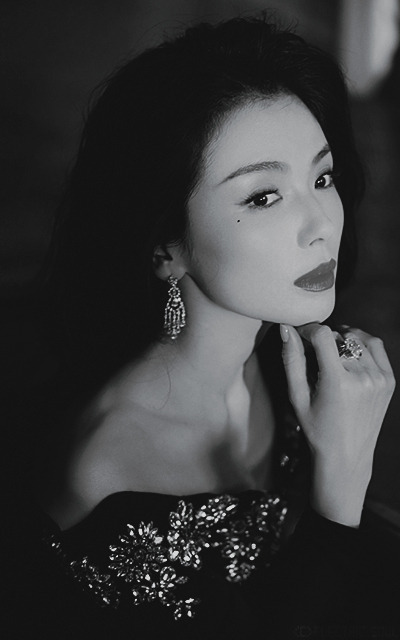
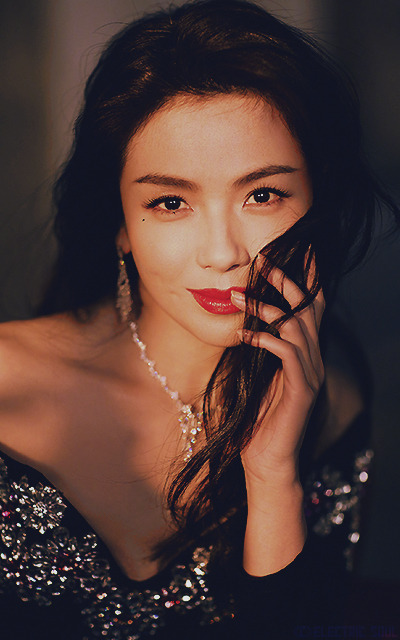
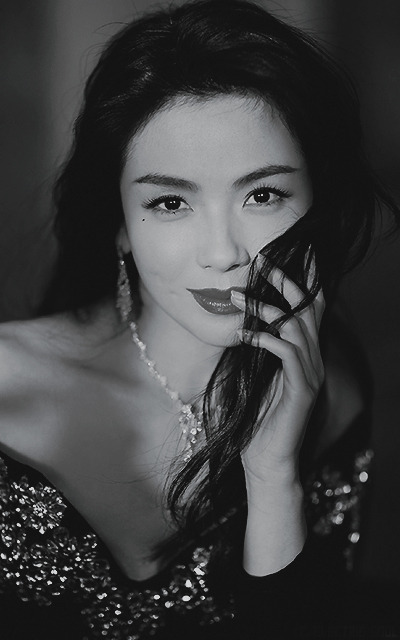
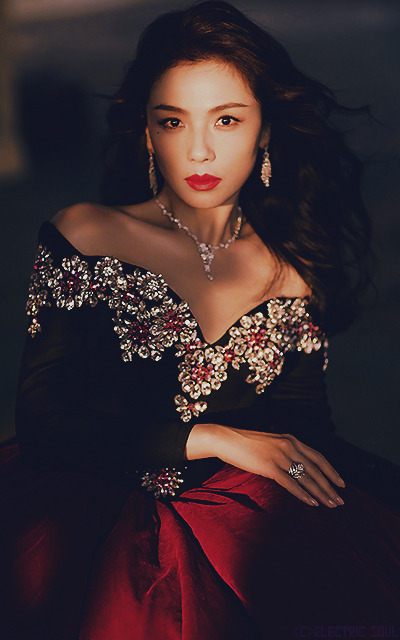
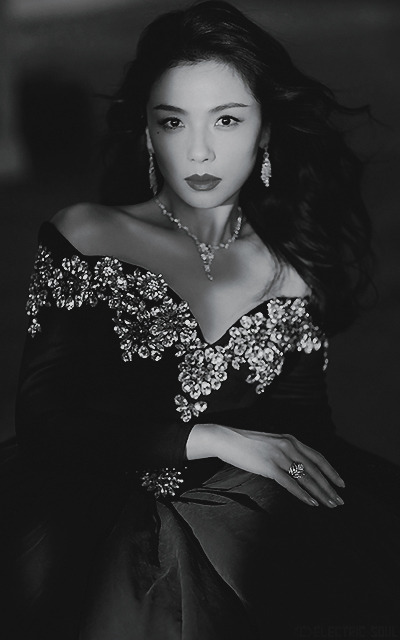
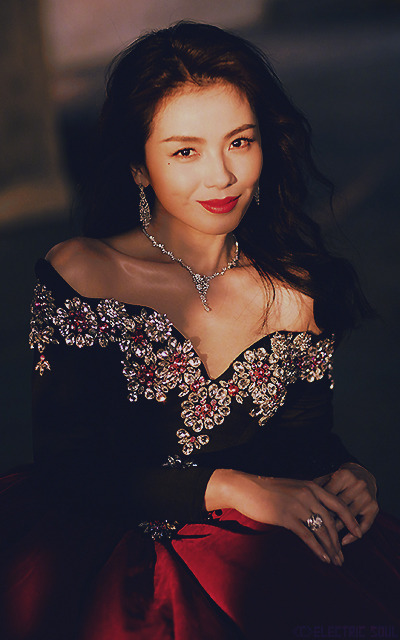
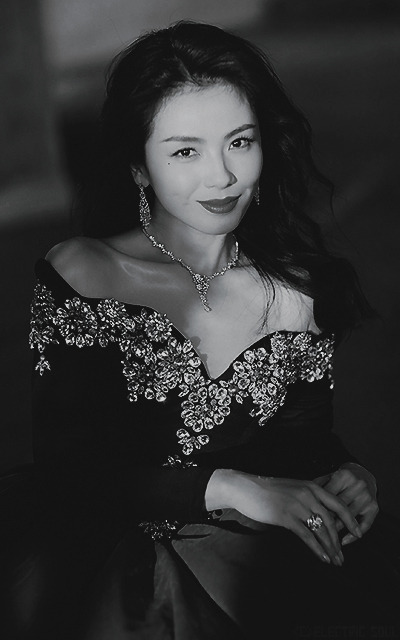


Liu Tao (刘涛) - Han Chinese
source: weibo
8 notes
·
View notes
Photo
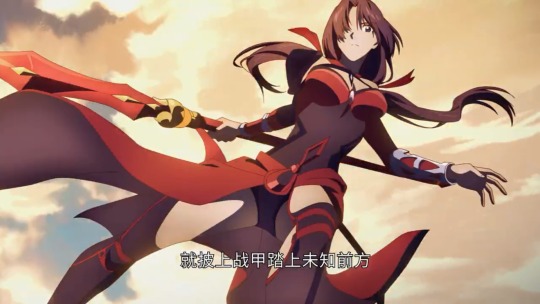
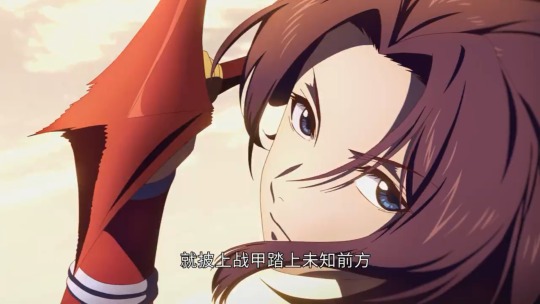
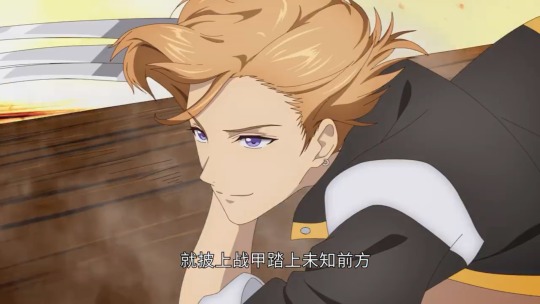
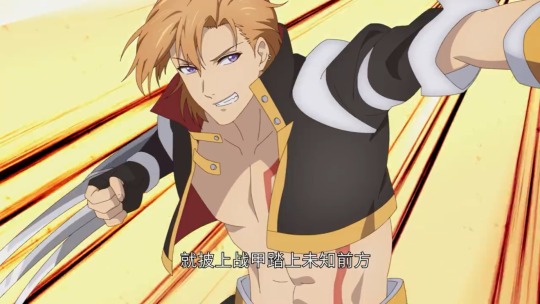
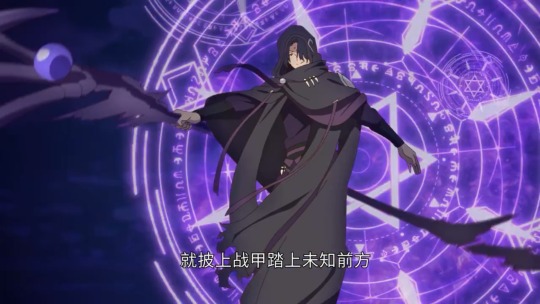
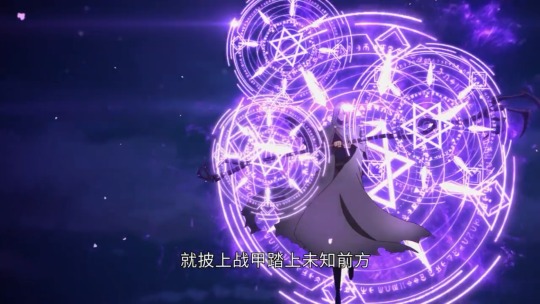
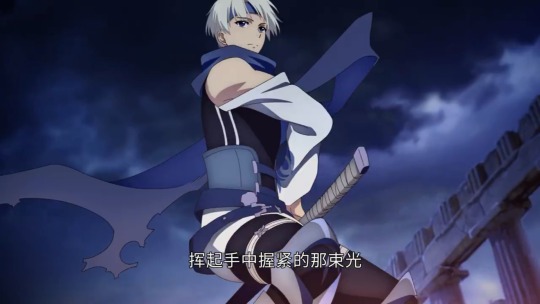
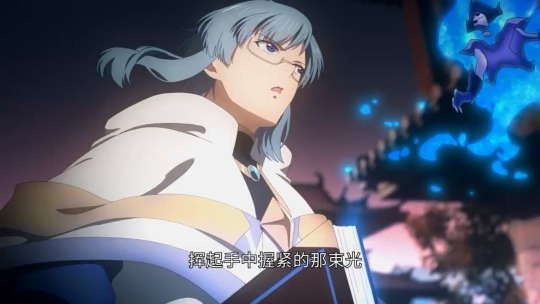
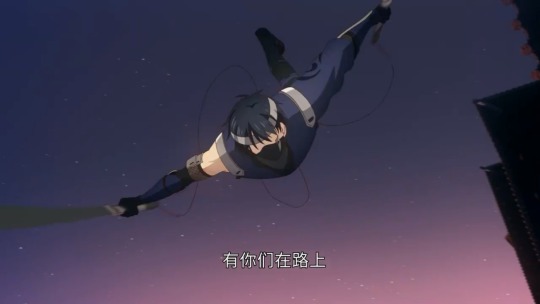
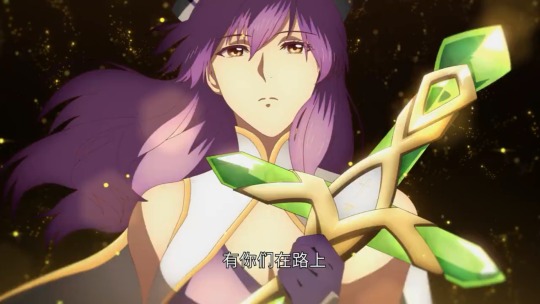
Some screenshots from TKA S2 Opening (pt.3)

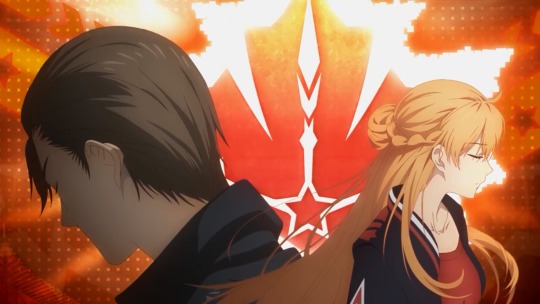
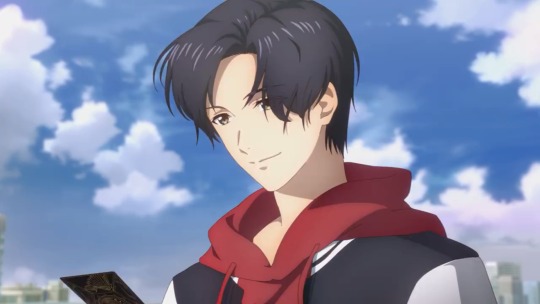
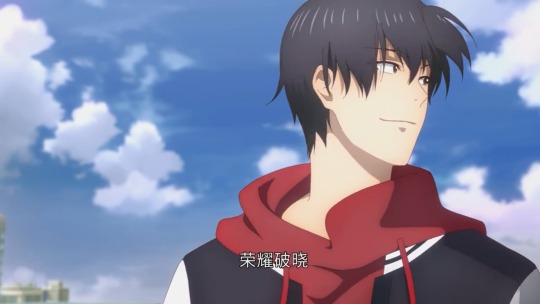
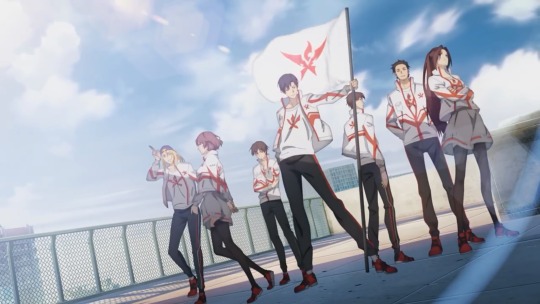
#quan zhi gao shou#the king's avatar#qzgs#Anime opening#screencaps#second season#donghua#Soft Mist#Steamed Bun Invasion#Windward Formation#One Inch Ash#Concealed Light#Deception#Little Cold Hands#Cui Li#Liu Hao#Sun Xiang#Tao Xuan#Su Mucheng#team Excellent Era#Ye Xiu#team Happy#long post
31 notes
·
View notes
Link
Chapters: 3/?
Fandom: 全职高手 | The King's Avatar (Cartoon), 全职高手 - 蝴蝶蓝 | Quánzhí Gāoshǒu - Húdié Lán, Hikaru no Go
Rating: Teen And Up Audiences
Warnings: Creator Chose Not To Use Archive Warnings
Relationships: Sū Mùchéng & Yè Xiū, Shindou Hikaru & Touya Akira
Characters: Yè Xiū, Sū Mùchéng, Sūn Xiáng, Táo Xuān, Liú Hào, Zhāng Jiāxìng, Cuī Lì, Shindou Hikaru, Touya Akira, Shēn Jiàn, Hé Míng
Additional Tags: Reincarnation, Alternate Universe, Supernatural Elements, Character Development, POV Alternating, Flashbacks, Minor Canonical Character(s), Character Study, eSports, Go | Weiqi
Summary:
“Ten years…a thousand years…there is no difference. I will always seek Glory—the Divine Move.”
Tears dripping soundlessly into a still lake, rippling water dragging him further underneath…
Crushing loss, cast adrift, with nothing to hold on to…
Bright laughter, the sunshine in his perpetually blank life…
Passion, filling him once more; joy, tugging him back to the past; love, tying him down from his aimless wandering…
The strongest memories of your life are more often than not your last.
Death is simply another barrier to overcome.
#the king's avatar#hikaru no go#quan zhi gao shou#fanfiction#crossover#tka#hng#hikago#qzgs#全职高手#sai#shindou hikaru#touya akira#ye xiu#su mucheng#sun xiang#tao xuan#cui li#liu hao#he ming#zhang jiaxing#shen jian#nanowrimo project#glory of the past#往昔之荣耀#my writing#weekly updates#reincarnation#alternate univese#go
5 notes
·
View notes
Text
[QZGS meta] what’s in an OP? dawning glory (pt 3)
(part 1) (part 2)
This is the third and last post in my little series analyzing the opening theme of The King’s Avatar Season 2! Honestly, this whole thing became way longer than I was expecting. I guess this is what happens when all my immense amount of love for this series, accumulated over years of no-donghua-updates, overlaps with my immense amount of love for anime openings.
Watched the first and second episodes yesterday, and they really sparked a lot of joy. :D I missed Blue River so much :D
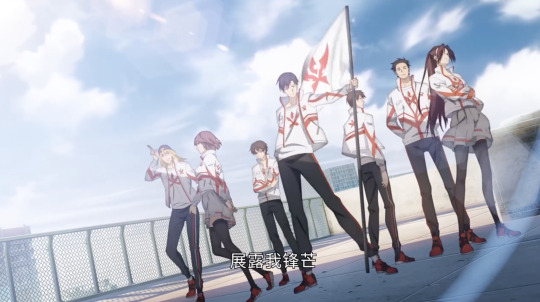
Yesterday, they released the OST for Season 2, which includes the TV cut and full versions of the OP and ED, as well as two insert songs, and the instrumental versions of all of the above. I’ve yet to find anywhere that lets me download the audio files (hoping they’ll be reuploaded to youtube or bilibili soon), but in the meantime you can listen here. They’re really good songs!
https: //www. kuwo. cn/album_detail/15792659
Anyway, let’s finish up this OP analysis!
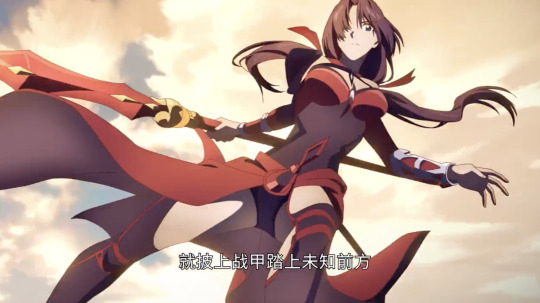
Now here, we reach the true climax as we enter the chorus section. This next segment is definitely the highest-energy part of the entire opening. It’s a montage of Happy’s characters showing off their moves, timed to the music; there’s not too much deeper meaning, but damn if it doesn’t look fantastic. The animation flows from one character and scene to the next so smoothly, so beautifully, it’s just incredibly hype to see. This is what you get when you specifically choreograph/animate sequences for the opening instead of just reusing shots from the main show! (Parts of some of these shots appeared in episode 1, but I do honestly think that it’s more likely that the show reused shots from the opening than the other way around, just because of how perfectly the OP fits together. I also don’t think it’s super noticeable in-show; I’ve just been watching this obsessively.)






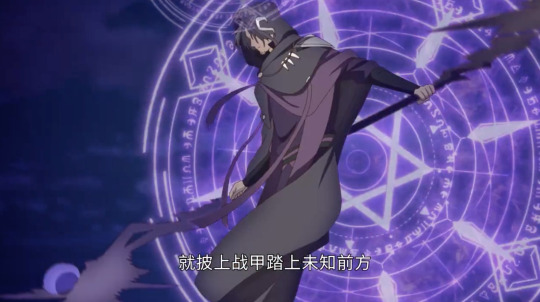
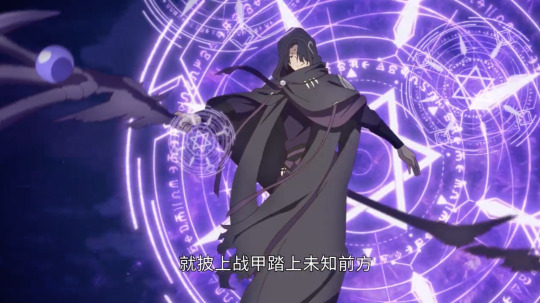
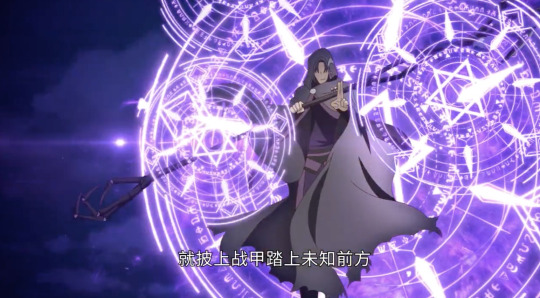
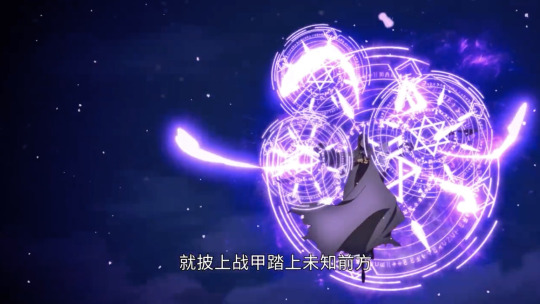
In particular I love the line that kicks this all off: “just put on your battle armor and step onto the road to the unknown.” Specifically, though, the rhythm of the lyric is, “jiu pi shang zhan jia ta shang wei zhi qian fang,” with emphasizing accents on the -ang sounds. This isn’t how you would divide the phrase naturally, but because the (syncopated!!) melody accents these notes/syllables, the rhyming effect really stands out and it feels as clever and satisfying as a rap lyric. Moreover, the emphasis times juuust right with the attacks of Soft Mist, Steamed Bun Invasion, and Windward Formation, a perfect example of how music and visuals mutually reinforce each other for maximum cool effect.
It’s generally easier to rhyme in Chinese than English, because of a smaller phonetic vocabulary. From the chorus onward, the key rhyme is on the “-ang” sound (think “ahng” or “ong”, not “aang” like the Avatar), which is a good choice - powerful, reverberant. The asymmetry of the syllable’s use in this section - the song’s lines are all different lengths at this part, so you’re kept on your toes as to when the pattern will reappear - helps add to the engaging excitement of the song. This is also the syllable used for most of the rhymes in the second half of the first OP.
jiu pi shang zhan jia ta shang wei zhi qian fang
hui qi shou zhong wo jin de na shu guang
you ni men zai lu shang__
shi li liang



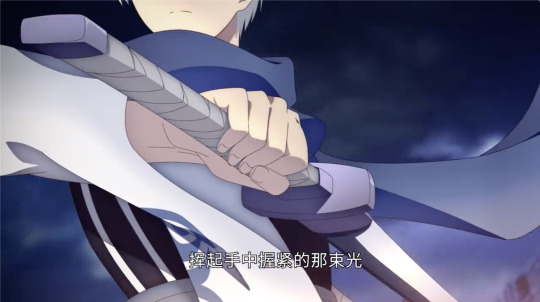
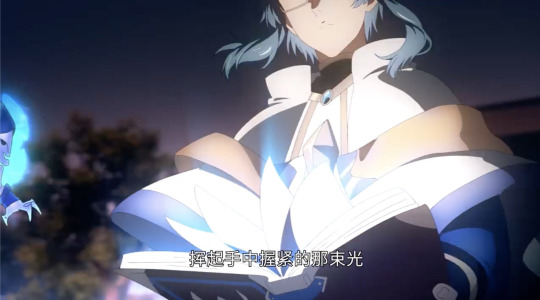
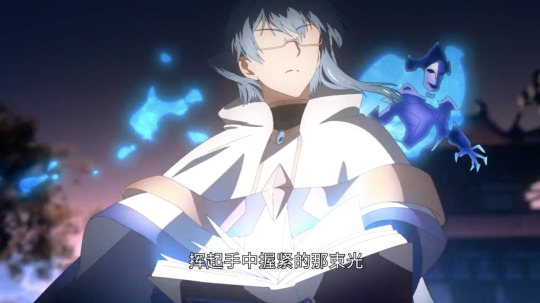
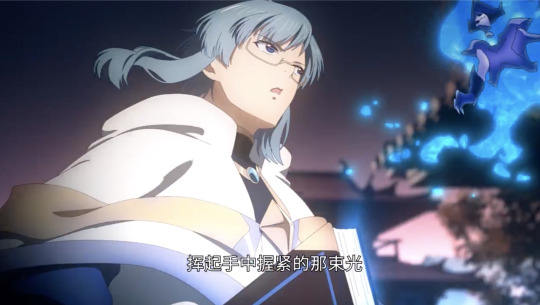
I really love One Inch Ash’s design. Concealed Light had a big redesign for this season, and honestly I like it as well. And notice here that he’s holding a book - exactly how we left Luo Ji when we saw him last!
“Waving the light clenched tightly in our hand” - that is to say, brandishing our light as our weapon, no matter what form it may take - a sword, a book, our hope and determination.
On a purely musical note (ha), right at this point, specifically the measure beginning with “那束光,” you can hear a three-note “ooo” harmony line in the background, and wow it’s so subtle but I love it so much! A similar three-note line actually appears earlier too (during the “crossing the frozen finish line,” right as the music is building up), also to great effect.

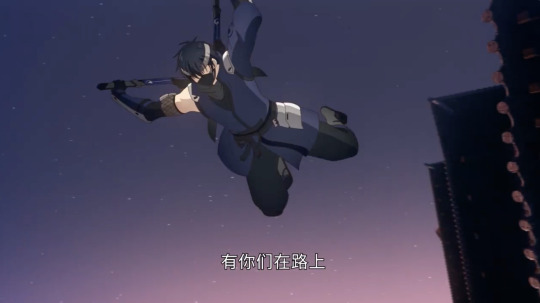
We follow Concealed Light’s gaze upward to the building to see Deception running along the wall, from which he does a flip and slashes downward with twin blades. I love that transition a lot, but my favorite transition of this entire sequence has to be the following one:

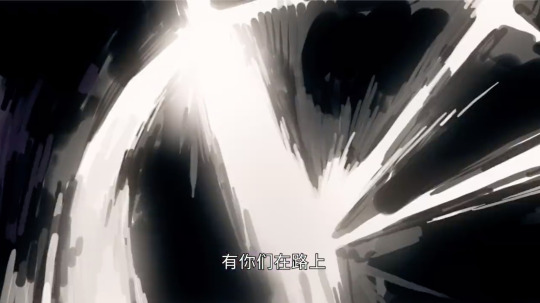
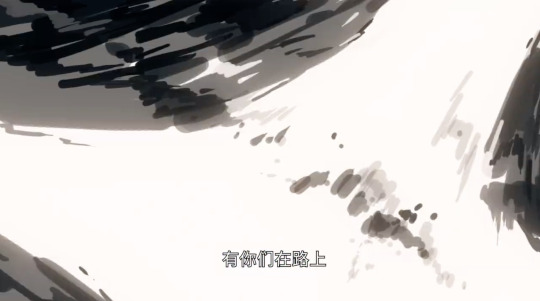

Yes! Deception’s cross slash resolves perfectly into the cross held by Little Cold Hands. It’s so fast and so natural you don’t even notice it, and that’s the absolute beauty of it. The first time I saw this, I was in awe - the animators really brought their A-game to this, far better than I ever would have dared hope for this series.

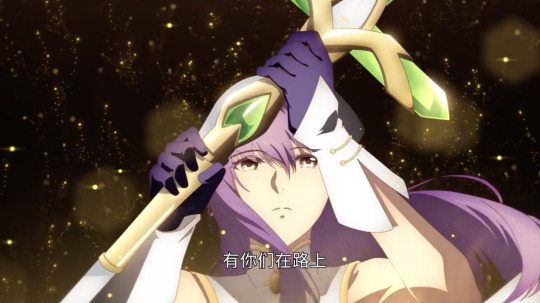

And Little Cold Hands is so pretty! When we got our first art of her official design, the comments were filled with people simping for her, and honestly, valid. I’m surprised her hair is purple instead of pink, but that’s just a minor thing.
There’s something especially powerful about how she raises her cross in time with the lyric “having you all here [with me] on this road,” and then the cross flashing brilliantly with “it’s power.” More than any other role, the healer is a team player. And this theme of team togetherness is particularly important for An Wenyi, who is deeply moved by the team’s perhaps illogical faith in him. Remember that analogy Ye Xiu tells him, of the straw tied to the deluxe mitten crab?
An aside: listening to this, I always thought the line should be 有你们在身旁 instead of 有你们在路上, because it still fits the rhyme, because my past experience has somewhat conditioned me to expect that phrase, and because the full message of “having you by my side is power” just makes me wanna tear up like what a good line! So it felt like a missed opportunity that they didn’t use that. But as it turns out, the final iteration of this chorus in the full version of the OP does, in fact, use “by my side”! And I think making this tiny tweak to the lyric the final time you here it just makes it that much stronger :’)
I’m also just a big fan of the “it’s power” melodic flourish in general, since it comes as a surprise. You kind of expect the melody to end with the previous phrase, but the extra notes here add a really nice emphatic beat to finish off the line.
So to recap the transitions: we see Soft Mist falling from the sky and get a close up of her face as she stabs her spear; this takes us to a closeup of Steamed Bun’s face facing roughly the same direction before we zoom out to his torso and he slashes from lower left of the screen to upper right; following the motion of that slash we see Windward Formation’s torso rotate in that direction as the camera zooms out farther; we follow the rays of his attack to see One Inch Ash drawing his sword; we zoom in on the flashing blade and zoom out on Concealed Light’s glowing book; we follow his gaze upward to see Deception running along the building behind him; Deception leaps and slashes and the slash becomes Little Cold Hands’ cross, which raises up and triggers an explosion. It’s just so dynamic and smooth even without taking place in one continuous setting, and it just really, really gets you hyped.
Also, starting from Happy’s team picture at the start of the chorus, which is during the day, it feels like Soft Mist and Steamed Bun’s moves are at late afternoon, Windward Formation and One Inch Ash take us to nighttime, and then you can see the first rays of morning in Concealed Light and Deception’s segments. This continuity also definitely helps with the feeling of natural flow through these scenes.
Anyway, this entire action segment is just so beautiful, I could watch it on loop. But we still have the final segment of this OP to analyze, so let’s keep going.

After the action sequences of the climax, we settle down a bit now as we approach the end. Here we see the Excellent Era team picture, in the same style as the team pics we saw earlier, but presented separately. It makes sense, as the role they play in the story is different from the roles of all the other teams.
Sun Xiang, Liu Hao, and Cui Li are at the bottom. Because we’re panning up, these three are the first we see. At first glance, the way they’re positioned is fairly consistent with the team pics we’ve seen already: Captain Sun Xiang at center-right, the largest figure; vice-captain Liu Hao, manager Cui Li in the background.
Sun Xiang’s position and expression is really the only one that fits the healthy pattern of the teams we’ve seen already - looking toward the camera, a confident (though arrogant) smile. He might be misguided, but there’s hope for him yet. Notice how Liu Hao isn’t even looking at the camera, which as we’ve seen before is somewhat of an indication of how unified and focused the team is toward its goal; instead, Liu Hao is doing his own thing, determined to prioritize his own desires over what’s best for the team. And manager Cui Li is in this image too, despite not even being a player. His sinister presence reflects the unhealthy interference of the business side in the gaming side. Excellent Era’s downfall comes about because of its prioritization of profit over victory.

As we pan up, Excellent Era’s logo comes into view. It’s larger than any of the other team logos we’ve seen so far, spanning around three-quarters of the screen whereas the others looked to span no more than half. Excellent Era’s legacy is a weighty one, to date the only team to have ever won three championships, and consecutively to boot.
It’s this immense, shining logo that seems to be casting Tao Xuan on the left into shadow. He cuts a large figure, reflecting the deep impact his actions have had upon the main plot of this story, even though he’s only now appearing for the first time in the donghua.
However, he’s also turned away from the camera, such that we can barely even see his closed eye. Because of that, it’s difficult to read his expression, but the impression given by this pose is not one of vindictive pride, but one of shame, as though he can’t quite bear to face what he’s done. On some level, no matter how he might try to rationalize it as necessary, Tao Xuan knows that his profit-driven betrayal of Ye Xiu was a pretty awful thing to do. It might be this amount of guilt that leads him to offer Ye Xiu a wish granted, a tribute to their years of friendship and partnership before their ties are severed completely.
In the end, Tao Xuan’s greed leaves him with nothing really to show for it. What had he gained? What had he lost? Those realizations are still a ways off in the story, but I like how this OP is already hinting at the depth of his character. Tao Xuan isn’t some glasses-flashing, evil-laughing, one-dimensional antagonist; he is in fact very realistic for the setting. We can condemn his actions and priorities, but at the same time we can understand how he ended up here.
As for Su Mucheng, her eyes are closed as well. She’s brightly illuminated, but pointedly turned away from all of the others in Excellent Era; she knows the direction of her future, and that it no longer lies with Excellent Era. Her loyalty was always to Ye Xiu, and as soon as he was banished, her relationship to the team was professional and nothing more.
“This light hidden in my heart is burning” - there are many ways to read this lyric and what exactly the light referenced here is, but because the line is paired with this image, I naturally think about Su Mucheng’s situation. Despite her pretty-vase, sweet-girl appearance, she holds a deep, profound anger at everything that happened regarding Excellent Era. It’s a testament to her immense strength of character that she lasted the remaining one and a half years of her contract in this hostile environment.
Yet even as she resolves to cut ties, there’s a sadness in her expression. She was here from the very beginning as well, when Excellent Era was no more than an internet cafe, and it pains her immensely that the powerhouse, championship team that they and her brother had built from the ground up would ultimately meet this tragic end.
It’s interesting to note that both of the “redeemable” characters here (namely Su Mucheng and Sun Xiang) are on the right, more brightly-lit side of the screen, so there’s a nice little dividing line you can draw there. Sun Xiang’s eyes are still looking toward the left, though, revealing how his character development still has yet to play out.

From there we cut to Ye Xiu holding Lord Grim’s account card. He’s standing back on top of the roof from the beginning of the OP, now in full daylight.
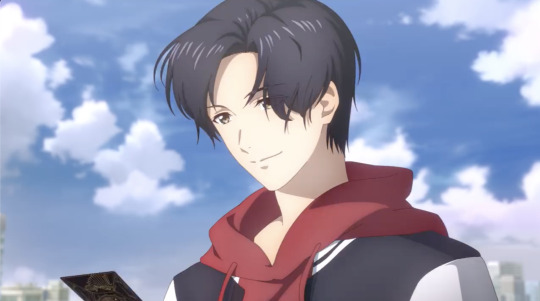


As mentioned… the animators really went ham on the bangs animation.
Ye Xiu turns away from the railing, the camera cuts to an image of Happy’s logo on a flag waving in the wind, and then we zoom out to see the current members of Team Happy gathered together in uniform, standing proud in the light of day. Left to right, Steamed Bun, Tang Rou, Luo Ji, Ye Xiu, An Wenyi, Wei Chen, Chen Guo. Presumably, this will be Happy’s lineup by the end of the season.
Up until now, we’ve only seen the real players separate from each other - they’ve all been in different places, never even in the same frame together. (This, of course, also contrasts the pro team pics that we have, which show everyone together.) Halfway through the OP, we got the group shot of them meeting in game with their characters. And now, they’ve finally met up in the real world as well.
One thing I like about this final pose is how it compares to the final pose of the OVA OP. It’s the same kind of power-pose vibe, but there we only had Ye Xiu, Chen Guo, and Tang Rou. Look at how we’ve grown since then! They’re well on their way to being a proper pro team!
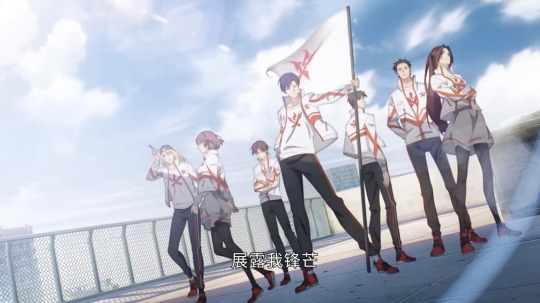
And that’s a wrap! With this final image of Team Happy gathered together, we’re ready to enter the episode proper.
So let’s talk about the OP as a whole. Generally, an OP serves a couple of main roles: a) tells you a bit about what the show is about, b) gives you an overall feeling / mood for the show, c) gets you hyped and ready to watch the upcoming episode.
How well does this opening achieve those goals? Pretty well, as we’ve seen. Past OPs did a pretty good job of setting the mood, but they honestly just put some pretty visuals on the screen, only vaguely aligned to the music, and called it a day. This OP, however, has a cohesive storyline to tell, framed around Team Happy’s coming together (following the tagline of this season). Even in such a short span of time, it manages to convey so much information about its story and characters, both overt and implicit (as I hope this series of posts has managed to convince you). Paired with the music, which has its own deeper meanings encoded in the lyrics, the OP becomes incredibly effective and memorable as it makes its statement.
I mentioned an “interest curve” earlier (interest in the sense of interesting, not the money); this is part of the standard formula for anime opening songs, in my experience. I’m a little too lazy to draw a graph myself, so take a look at this image:

(source: https: //www. researchgate. net/figure/Example-of-an-interest-curve-for-a-successful-entertainment-experience_fig1_333917625 )
Although not all of the relative heights and segment lengths are accurate in this specific case, hopefully the general shape of the interest curve is enough to demonstrate my point. You’ve got the A-B peak at the opening instrumental segment, the C-D peak/arc over verse 1, the D-E-F peak/arc over verse 2, then the sharp F-G-H peak over the chorus before dropping off for a smooth landing right into the episode. This general pattern is effective at holding the viewer’s focus and managing their excitement over the course of this one and a half minutes.
Visually, the OP is just such a treat for the eyes. I’ve already talked about many of the little details I love - lighting, character designs, animations, transitions, etc. - but all in all the new animation studio is doing a really good job here. An OP is how you hook people, and I’d definitely feel comfortable using this to try and bait people into watching this show.
One comment I want to add is about the incorporation of the credits, which we didn’t see until the episode premiere. I don’t think there’s anything too exciting to say (and I also don’t have access to any images right now since the OP was only shown in episode 2), but the fonts and styling were a nice choice - it gave a gaming vibe, but if I recall it still used a serif font, so it didn’t feel overly modern - and the text positioning generally complements instead of distracting. I also liked how they showed the lyrics! I didn’t really expect them to include them onscreen, or if they did, I thought they would just be plain subs like they were in this video. But in the actual OP that plays at the beginning of the episode, they’re as much a part of the art as the credits!
If I had to make any criticism, my biggest complaint about the OP is, I think, the singers. I think having two different singers trade off can work nicely, but in this case, the switches are jarring because their voices are so different. The first singer has a lower, gravely voice, while the second singer’s voice sounds much brighter and more nasally. Furthermore, the first switch doesn’t come until we’re fully halfway through the song, which means that by that point we’re already used to this first singer. It’s also strange that they’d switch back to the first voice at the climax of the song, when I think the second voice would suit the high-energy segment much better. Switching from second to first right at this point feels like we’re actually taking a step down in energy, which is the opposite of what should be happening here.
Still, my main problem isn’t with the voice switching but with the voices themselves, and I think the voices are something I could get used to. The third switch, going from the first voice back to the second voice during the shot of Excellent Era, is much less jarring than the others - I actually like how it feels like the solo is passing naturally from one person to the next, emphasizing the ideals of this not being a single-player game and all that. For that transition in particular, I think (because of the added “it’s power” flourish) it happens too quickly for one person to sing it comfortably, so having another person pick up the line works best. And I do like how the voices sound when they overlay together for the final lines of the song.
So, overall? Overall, this OP is really damn good. It’s everything I could have asked for and more. After such a long wait, the OP, at least, does not disappoint, and I’m extremely excited to see what the series has in store for us.
If you’ve read to this point, thank you! I like this series a lot, as you can probably see, and I’m treating it as my glory :)
17 notes
·
View notes
Text
the falling of one leaf heralds autumn
Title: the falling of one leaf heralds autumn
Author: Seleneremusravenclaw
Fandom: The King’s Avatar/Quan Zhi Gao Shou
Genre: Fluff, Angst, Romance
Characters/pairings: Su Muqiu, Ye Xiu, Su Mucheng, Tao Xuan, Sun Xiang, Others, SanXiu
A/N: my first fic for TKA, hope you like it!) though I can’t really write that well) this will be a multichapter fic, though I can’t say when I’ll update
Chapter 1
It’s a new start. He’d said. The surprise on their faces, then replaced by hope. Soon after, laughter returned to the room. It was simply as if, the silence had never existed.
In a different room, in an unfamiliar, cold place, a very familiar silence had returned. In the entirety of their friendship, only twice, when they’d been in the same room, was there silence. In the entirety of their friendship, only twice, when they’d been in the same room, was there complete silence.
No indignant cries at Ye Xiu’s shamelessness, nor the usual laughter after they’d beaten their own records again. Here, not even the fast tapping of computer keys could be heard- well, not that there was a computer here.
Mucheng seemed close to tears, while Muqiu’s expression remained grim as he stared at the male lying on the bed. Ye Xiu’s face was paler than usual- something that was hard to believe, considering how pale he normally was. His delicate hands lay by his side, his dark hair messily framing his face, forming a stark contrast with the white sheets.
He was supposed to be the one lying on the bed, taking weak, shallow breaths, each which could be his last.
Thinking back, Ye Xiu should have been the one standing in his place. Muqiu let out a soft sigh, reminiscing the days past where they had given everything to Glory. He still did.
Among the gods of glory, he could be considered among the top. Muqiu was undisputedly, the god of the gunner classes. Putting that aside, his proficiency with the other classes were top tier too.
Under the gaze of all of Glory, Muqiu brought Excellent Era to a golden era. The first, the second, then the third. The veterans of Glory would come to know this time as the reign of The Gunner. An simple moniker, admittedly, but nothing else was able to easily profess his skills in the gunner classes.
In the fourth season, Han Wenqing took the title from them. He left behind a few words for them. ‘It should have been Him.’ Muqiu understood, as did Mucheng, who had brought One Autumn Leaf to the stage that year. Muqiu smiled, keeping his silence.
Excellent Era’s captain liked to keep to himself, preferring to train alone, or on occasion, with Mucheng. He wasn’t a bad captain, by usual standards. Muqiu was friendly, and wasn’t harsh on the players either. Yet.. he seemed to distance himself slightly, only really keeping his sister as company.
Within the team, several perceived it as arrogance. Well, if they’d seen a person, not their captain- the one that cast his shadow upon them and planted seeds of jealousy at his skill, they would have been able to tell. Their captain wasn’t arrogant, he didn’t have the air that came with that kind of pride. Very simply, when he played with others, subtle wisps of longing would enter his eyes and threaten to make him remember a time where there were three of them, not just two.
Tao Xuan was displeased. The captain of the team was willing to appear on stage, to show his face. His appearance was fairly handsome, and youthful. Unfortunately, this youth, who had the attention of the majority of Glory, rarely agreeing to appear in advertisements. In actual fact, rarely was putting it nicely. He’d done a total of five in the time he’d been with Excellent Era.
Each of them had been received extremely well, yet he never did more. He had to consider the relationship between him and the team too- it was neutral at best, and at worst, the team disliked him. Not to mention, some members, mainly Liu Hao and his friend, , openly disregarded him.
Such a captain.. Tao Xuan had to consider whether it was worth it to keep him around.
Muqiu handed over his account card. The hand he’d reached out trembled slightly. “Old Su, it can’t be, your hands are shaking? How can you show the might of your guns if your hands are like this? Don’t worry, I’ll let The Gunner reign over Glory again, as for you.. retire!” Muqiu was silent as he watched the teammates he’d been with for so many years praised Sun Xiang.
What would he have said? Muqiu quietly looked for an answer. Then he smiled. “Do you like Glory?”
Sun Xiang was startled. “Old goat, what are you talking about?”
“If you like it, then treat it all as glory, and not boasting.”
At this moment, a lofty air seemed to surround Muqiu. As for Muqiu himself, he felt like he had seen an old friend. The other male was unhappy- he felt that he had lost out, losing control when facing someone he had come to replace.
Later, when Mucheng asked him what he would do next, he waited for several minutes before replying. “It’s a new start.”
An account card spun around in his hands as he decided where to go next. If a Glory veteran saw it, they’d be surprised, simply because it was a first edition card. In Glory’s first server, there were only so many players, so seeing one was rare.
Su Muqiu covered his face with his scarf, rubbing his hands to warm them as he entered an internet cafe the clerk looked up at him. “Computer?” Muqiu nodded, placing his identification card on the counter. “Area C, computer 47.” Muqiu took back his card, turning to find his computer.
Launcher.. When he arrived, the computer was occupied. On the screen, he saw the cannon of a launcher. This class, was the very class he’d used for almost a decade of his life.
He was brought out of his memories as the woman cursed loudly. The screen showed one word: DEFEAT. The girl turned around to see Muqiu. “Computer?” Seeing him nod, she got up and stomped away.
“Boss! Someone’s playing on your account!” When Chen Guo heard that, she realized something- she’d forgotten to log out! When she rushed back, she only saw the word which represented victory- GLORY in large, bold font.
But, how long had she left the computer? Barely a minute! “Ah.. sorry. The match had already started when I sat down, so I played for you.” She was stunned into silence. “Wait.. how long did you take to win?” “Oh, about 20 seconds, not bad, they played well.”
Not bad? Not bad? Chen Guo had played Glory for five years- this opponent was one that she couldn’t defeat even after several tens of matches. Although she wasn’t an amazing player, she was definitely above average!
Yet this guy, who had simply walked in, had defeated this player easily, and called them ‘not bad’?
She made up her mind- this guy, he was definitely a pro player! “What’s your name?” Boss, here…” The god looked at the people in the internet cafe.
She realized the problem. “Oh.. would you like to move to a private room upstairs?”
“No need, I’ll just play for a bit.”
#quan zhi gao shou#the king's avatar#sanxiu#ye xiu#su muqiu#su mucheng#excellent era#angst#major character death
49 notes
·
View notes
Text
The Chinoiserie Genre, Revisited
(What follows is a repost from April 2017, updated to include the chinoiserie explosion of the past three years.)
Readers familiar with the Pulp Revolution have certainly by now heard that with the death of the pulps, many genres fell out of favor. Hero pulps, sword and sorcery, and planetary romance have all declined from the heyday of the 1930s, often replaced entirely by other expressions of fantasy and science fiction. Yet as we return to reading the pulps instead of what people say about the pulps, whispers of other genres appear. For instance, hidden among the three proud pillars of weird fiction – horror, science fiction, and fantasy – is a fourth genre, one as exotic as its name: chinoiserie.
Chinoiserie first started in the 18th century in the visual arts. European artists impressed by Chinese artistry began to imitate the Eastern designs, incorporating them into pottery, furniture, decor, gardening, and even music. The appetite for chinoiserie grew with the perception of China as a highly civilized culture, even beyond the European norms. The artistic movement continues to the present day, with many works of chinoiserie available online. As with many artistic movements, this fascination with exotic cultures made a jump into literature.
Literary chinoiserie began as an exploration of unfamiliar Oriental cultures as perceived by Western writers. While the visual arts quickly distinguished between Chinese-influenced chinoiserie and Japanese-influenced japonisme, no such distinction was made in the literary world, with chinoiserie describing Persian, Byzantine, Japanese, Tibetan, and Chinese stories. (Despite convention, I will be using chinoiserie and japonisme to differentiate the two flavors of literary chinoiserie.) However, the term quickly narrowed to Pacific Asian cultures, with the Chinese association dominating. Literary chinoiserie expresses itself in three major forms; the exploration of Chinese lands, the exploration of Western ideas of Chinese culture in both its homeland and its diaspora settlements, and the exploration of an idealized China that never was. Occasionally, Western culture would dress up in chinoiserie robes for the purpose of satire, as in Gilbert and Sullivan’s The Mikado. But common to all expressions is the idea of the outsider looking into another culture not his own, and not always understanding what is seen. One does not write chinoiserie of their own culture. The Chinese author of the Three Body Problem, Cixin Liu, writes Chinese science fiction, while Peter Grant writes chinoiserie science fiction dealing with Chinese triads in space in his Maxwell Saga.
Perhaps the most sensationalized version of chinoiserie, yellow peril is the tendency of pulp writers to use Chinese as villains, as popularized by the Lord of Strange Deaths himself, Fu Manchu. Hidden in every shadow were copycat secret societies led by cunning occult mentalists and sensuous deceitful dragon ladies. This was primarily a staple of weird menace, a sensationalist genre of lurid stories where a dreadful and mysterious terror, usually occult or supernatural, threatens to overtake the hero unless he acts. This Chinese threat was not the only staple of the genre, as fantastic, mythological, and scientific terrors would also loom in the pulps, however the trope was common enough to have its subversions and aversions, with the honorable and heroic detective Charlie Chan as the most famous antithesis to yellow peril villains.
Chinoiserie’s fascination with exotic China found a home in the pulps. The Shadow’s first adventure, The Living Shadow, found the Knight of Darkness playing master of disguise in Chinatown to root out a hidden killer. Counter to convention, this killer, Diamond Bert, only posed as a Chinese mastermind. Among the imitators of the Shadow, the Green Lama featured an American student of the Tibetan Lamas using Eastern secrets to defeat Western criminals. Sidney Herschel Small wrote adventures of Asia and American Chinatowns. E. Hoffman Price led the parade of writers of Weird Tales who would use chinoserie, many of which would claim that their stories had been discovered in the markets of China and Istanbul. Clark Aston Smith wrote a prose poem describing two lovers separated by centuries in his “Chinoiserie.” Manly Wade Wellman’s occult investigator, John Thunstone, would test his metal and that of a holy blade against a cursed Gurka honor sword in “The Dai Sword.”
As the pulp age faded, so did literary chinoiserie. But the fascination with China lived on. Robert van Gulik found a copy of The Celebrated Cases of Judge Dee in a second-hand store and translated the fictional account of Tang dynasty judge Di Renjie into English. Van Gulik then wrote an entire series of new adventures for Judge Dee, starting with The Chinese Maze Murders. The adventures of the Sinanju master assassin Chuin and his worthless assistant Remo Williams filled book after book of the men’s adventure series The Destroyer. Andre Norton brought a taste of China to gothic romance in The White Jade Fox, where an antebellum governess must keep her charge’s Chinese treasures safe from her stepmother. E. Hoffman Price would return to chinoiserie in The Devil Wives of Li Fong with the tale of the serpent Mei Ling as she protects her family from Taoist magic. Finally, in perhaps the brightest gem of the chinoiserie crown, Barry Hughart’s Bridge of Birds chronicles the adventures of the sage Master Li and the villager Number Ten Ox as they face off against crooked peddlers, rabbity tax assessors, exalted lords, and the machinations of the gods themselves in search of a cure for the kuu poison affecting their village’s children.
Inspired by Bruce Lee’s fame and Hong Kong cinema, movies such as John Carpenter’s cult-classic Chinatown misadventure Big Trouble in Little China and Disney’s Mulan took the torch of chinoiserie from literature, created beloved classics of the silver screen in the process. Chinoiserie also moved to video games with the gory martial-arts fighting series Mortal Kombat and Bioware’s Jade Empire, an RPG homage to the Shaw Brothers‘ kung-fu movies, while the short-lived Firefly television series added a Chinese voice to the strange conversation between Japanese samurai films, American westerns, and science fiction as a whole. More recently, the martial arts cartoon Avatar: The Last Airbender explored a fantasy version of China, mixing Western alchemical elements with Chinese martial arts. The tradition continues into this decade, with Wu-Tang Clan’s RZA starring in The Man with the Iron Fists, a loving tribute to the grindhouse days of blacksploitation and the Shaw Brothers’ cinema.
As China moved from the written page into the theaters and small screens, Japan took over the written word. James Clavell’s Shogun and Jessica Amanda Salmonson’s fantasy adventures of female samurai Tomoe Gozen are among the first novels reflecting the shift from chinoiserie to japonisme. As Japan rose again to become an economic power and a media giant in the 1980s, American fascination with the Land of the Rising Sun grew, spilling over into its stories. Perceptions of present day Japan are explored in thrillers like Michael Crichton’s Rising Sun, lost-in-translation misadventures like Isaac Adamson’s Tokyo Suckerpunch, and lost to reality gamer webcomics such as Megatokyo. Continuing the tradition created by Lafcadio Hearn’s Kwaidan, the folklore and mythology of Japan are explored in novels such as Kij Johnson’s The Fox Woman and Lian Hearn’s Tale of Shikanoko series. Japanese history from the Heian court to the Warring States forms the backdrop for I. J. Parker’s Akitada mysteries, the Yamada Monogatari series of Richard Parks, and the classic Tales of the Otori. Japanese elements flavor John Wright’s Daughter of Danger, Neil Gaiman‘s Sandman and American Gods, and indie works such as Rawle Nyanzi’s Sword & Flower and countless others. And the thirst for all things Japanese (and japonisme) has yet to be quenched.
Perhaps the reason why chinoiserie and japonisme do not get the recognition that other genres do is because they combine so well with other genres. Chinoiserie rarely stands alone in a story, but crosses with action, with detective mystery, with noir, with fantasy, and even with science fiction to bring a exotic flavor to those genres. It has been easy to lose sight of the influence of chinoiserie as this weird fiction genre has drifted into the historical fiction and literature shelves. However, the influence of the East upon weird fiction is unmistakable, and chinoiserie is as much a founding genre as fantasy, science fiction, and horror.
Since this article was first penned in April 2017, the fashions of publishing, both traditional and independent, have brought easy access to original works from Asian countries, including web novels, light novels, literary RPGs, wuxia martial arts epics, and xianxia chi cultivation epics. As the number of Chinese, Korean, and Japanese novels in English increased, and even Russian copies of the same genres, they inspired a similar boom in chinoiserie.
Some Western writers penned their own adventures in a mysterious East that never was, but should have been. See M. L Wang’s The Sword of Kaigen, Tao Wong’s A Thousand Li series, and M. H. Johnson’s Silver Fox and Western Hero series. Others wrote Western versions of favorite Eastern genres, including the entirety of the current litRPG/GameLit scene, an early boom in kaiju monsters, and the regrettable prevalence of harem sexual comedies. Brandon Varnell has distinguished himself as the front runner in original English light novels. And a giant robot scene continues to simmer beneath the science fiction waves of space marines and stormtroopers, led by Chaney and Taggert’s The Messenger series and Brian Niemeier’s Combat Frame XSeed. Finally, a few writers, like Dakota Krout in his Divine Dungeon series, have melted Eastern and Western ideas and influences into Matrix-like newness. And for each author mentioned, there are five others awaiting discovery.
Readers’ thirsts for chinoiserie and japonisme have yet to be quenched, and those with that taste may soon find themselves in a silver age of Eastern-flavored adventures.
The Chinoiserie Genre, Revisited published first on https://sixchexus.weebly.com/
1 note
·
View note
Text
Reminder: September birthdays

Characters born in September: Liu Xiaobie, Luo Ji, Qiu Fei, Yu Feng, Zhang Wei, Tao Xuan, Wei Chen, Li Hua
#quan zhi gao shou#the king's avatar#qzgs#reminder#calendar#Liu Xiaobie#Luo Ji#Qiu Fei#Yu Feng#Zhang Wei#Tao Xuan#Wei Chen#Li Hua#my scans#art by Botija#chibi#Su Mucheng#Dancing Rain
25 notes
·
View notes